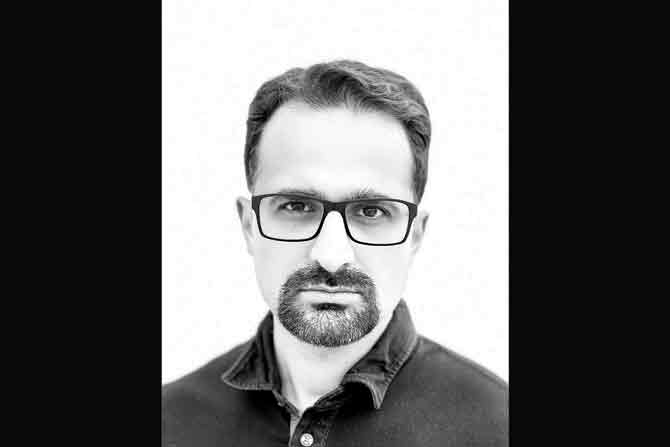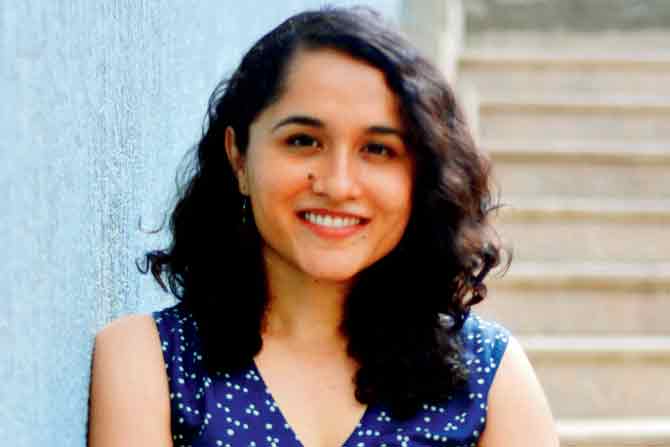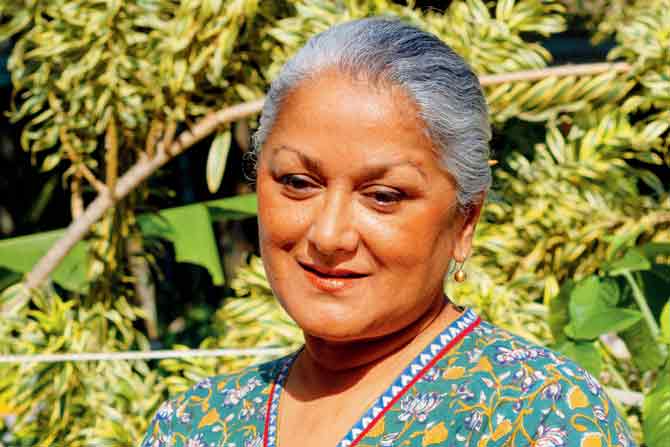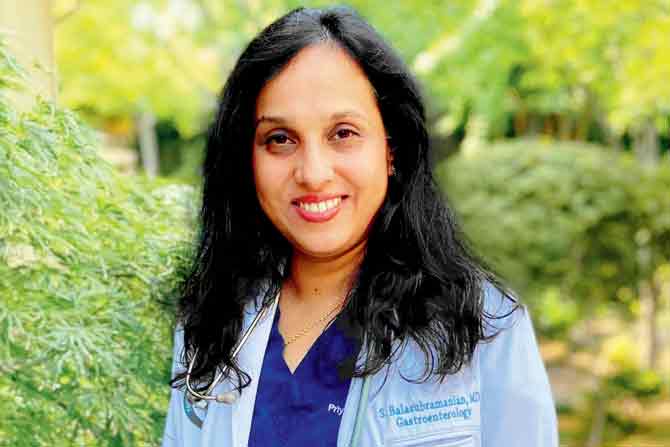
Illustration /Uday Mohite
Milk Teeth establishes aerospace engineer Amrita Mahale as a prominent voice in Indian literature." The headline to an otherwise glowing review of the Mumbai-based author's debut in a leading daily last year, made all the right noises, except that it was clinging to a stereotype. Mahale gets this often. Since her JCB Award longlisted-book made it to the bookstores in November 2018, she has been called everything from a rocket scientist to an AI researcher and IITian. Writing is always seen as incidental, which she finds "amusing".
ADVERTISEMENT
When you work in the sciences, but are also a storyteller, what would you be most remembered for? Russian-born writer Vladimir Nabokov will always be known for his literary masterpiece, Lolita. This, despite being an entomologist and butterfly evolutionary theorist of repute. Ohio-based nuclear radiologist and writer Amit Majmudar, whose novel Soar (Penguin Viking) released in February this year, would love that. "I am a poet, who is also a radiologist," he clarifies, in an email interview.

Amit Majmudar
Majmudar, who was named Ohio state's first poet laureate in 2016, has a vast oeuvre to his credit. He has explored themes of history, mythology, politics and love, in his verse and fiction. His recent work is a tragicomic novel set during World War I, and tells the story of two Indian soldiers who go up in a surveillance balloon, which gets cut loose and floats over the Western Front. "I knew I wanted to be a writer as early as 12 or 13 years old. I originally wanted to be a writer of espionage thrillers, and those were my earliest pieces of writing. I've come a long way from there," he adds. He chose an alternate career because it helped pay the bills. "I practice radiology to provide for my family. That is its role. If I could one day provide for my family simply by writing, I would do that. I am happy to skew the balance 100 per cent toward literature."

Amrita Mahale
Even as a child, Mahale had a soft spot for literature. In her childhood diary ingenuously titled, The Complete Works of Amrita Mahale, which she shared on her Instagram page—and written nearly 21 years before her first novel—she discusses her obsession with Arundhati Roy and how she "aims to be a writer" some day. "But growing up, I did not know anybody who had pursued a full-time career in the arts. I suppose I did not have the imagination or courage to choose that path for myself. That said, I loved physics and maths as a student and was fascinated by flight, so I chose to study aerospace engineering out of passion," says Mahale, who later graduated from IIT-B and Stanford University.
Dr Indira Chandrasekhar, a scientist, writer and literary curator had a similar—if not exactly the same—trajectory. "I think [as a child] my head was always filled with stories, and the impulse to express them was fed and nourished by the many wonderful storytellers in my family. But as I started to grow older, those wildly entangled threads needed to sort themselves out. Fortunately for everyone, rather than indulge in terrifying adolescent poetry, I fell silent for many years as far as writing was concerned."
However, she says that those "ideas fermented and gestated, and a particular concoction of geography and circumstance catalysed and transformed her into the writer I am trying to be today."

Dr Indira Chandrasekhar. PIC COURTESY/DEVIKA RAMAN
Dr Chandrasekhar, who has authored a collection of short stories, titled Polymorphism (HarperCollins India), says that science was, in fact, a major contributor to her ability to write fiction. "The logic and structure and need for meticulous attention to detail that science demands helped me organise the churning in my head. Science also pushes you constantly to make a creative leap during the process of analysing data and extracting truth from it. That is wonderful training, really, in exercising the imagination. And, most of all, science is all about exploring mind-blowing, foundational concepts like the existence of life, the boundaries of the universe, ideas that are absolute stimulants as far as the creative imagination of a fiction writer is concerned."
Polymorphism, for instance, was influenced by biology and biophysics. "I examine selection, procreation, the complexity of maternal. Some stories are slip stream or speculative fiction, weaving together the present and the future."
Majmudar who likes to keep his profession and passion separate, also says that medicine keeps creeping in, "whether in scientific references, or a certain tendency to use language very precisely".
"The sciences are all I have ever formally studied, and I dwell in that world for hours every day—so I guess it's inevitable."

Priya Balasubramanian. Pic courtesy/Nanda Natarajan
Another medical science expert who made her writing debut this year is California-based gastroenterologist and transplant hepatologist Priya Balasubramanian. Her book, The Alchemy of Secrets (Westland) published sometime before the lockdown, is a complex story of love, family and friendship, set in the city of Bengaluru. "I used to write in medical college [in the mid-1990s], and had the idea of a novel in my head at the time—as I think most people do at some point in their lives. It was a kind of an idle daydream. I graduated from medical college and the next few years were packed and disorienting in a way that was happy, but unanticipated. I had been a carefree student, and now somehow, I was a doctor, wife and mother, living in a different country," she says.
Having put her medical practice—with the exception of her children and family—before everything else, writing the novel even if much later in her life, felt like a selfish endeavour, she says. "It took me away from my real responsibilities for hours on end."
Discussing how she straddled writing alongside her full-time job, Balasubramanian says, "I had strict rules about when and where I could write. Initially I would write Sunday mornings, when the rest of my family was out of the house. Then I had an opportunity to cut back at work, and Friday mornings opened up. I took vacation days some years, to go on retreats or writing workshops, or sometimes just to write. There would still be weeks or months when I couldn't write and I'd get unhappy, but usually that meant that when I did finally sit down to write, the pages would come quickly and easily. It was a lot of juggling and some guilt, but writing enriched my life in so many ways."
Mahale was working for an ecommerce firm in a marketing and analytics role, when she decided to quit her job to write Milk Teeth, a coming of age novel set in Matunga. "I did not enjoy the job, which made quitting to write full-time much easier. I was on a sabbatical for two-and-a-half years and a little nervous about my employment prospects once the book was done, so I took on a few consulting assignments in this period." She now works in the AI space for social good.
The authors admit that there are stereotypes, about what writers, especially those penning fiction, should be like. "But anyone who knows writers personally knows that stereotypes don't apply—there are all sorts of personalities who get into writing," says Majmudar.
Did not having a writing background, make it challenging for the authors to find publishers? Yes, feels Balasubramanian. "But I always treated my writing as a serious thing—I read books on craft. I went to writers' workshops and conferences and tried to learn as much as I could outside of an MFA, or other writing degree. Hopefully that attention to craft did show up in my work when agents and editors read it."
Dr Chandrasekhar, who is the founder and principal editor of Out of Print, a primary platform for short fiction, puts it simply. "Publishing [unlike writing] is a market-driven platforming beast that must remain sustainable and profitable. The network, is undoubtedly a filter in the process of getting one's work seen by publishing houses. The world of publishing is, however, evolving and changing, and that evolution will surely be impacted in unpredictable ways by the pandemic. One can envisage science and technology playing a role in the development of new formats, new business models for publishing."
Catch up on all the latest Mumbai news, crime news, current affairs, and a complete guide from food to things to do and events across Mumbai. Also download the new mid-day Android and iOS apps to get latest updates.
Mid-Day is now on Telegram. Click here to join our channel (@middayinfomedialtd) and stay updated with the latest news
 Subscribe today by clicking the link and stay updated with the latest news!" Click here!
Subscribe today by clicking the link and stay updated with the latest news!" Click here!






